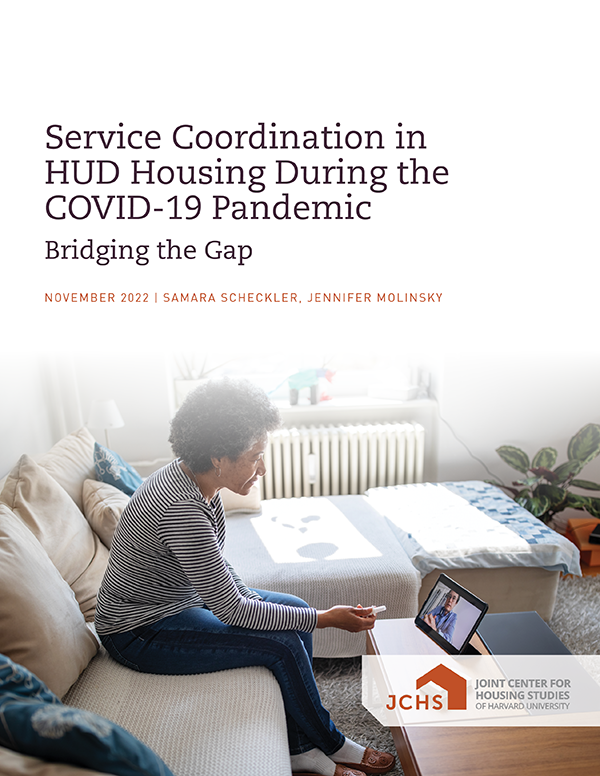Service Coordination in HUD Housing During the COVID-19 Pandemic: Bridging the Gap
During the COVID-19 pandemic, service coordinators increased the capacity of a large and diffuse inter-organizational network to support lower-income older adults. Researchers conducted two surveys of service coordinators who worked with older residents of US Department of Housing and Urban Development (HUD) multifamily properties in mid-2020 and late-2021. These residents experienced many pandemic-related disruptions to their support systems, and findings revealed ways that service coordinators assessed resident need, linked them to public benefits programs, improved their access to technology, translated public health responses, and facilitated access to partner organizations and professional supports. Through assessment and communication, and decision-management and problem solving, service coordinator work increased the efficiency and effectiveness of external supports available to help meet residents’ needs for food, medicine, supplies, personal care, and mental and physical healthcare. With an aging population and an increasing rate of unpredictable weather events, service coordination, which is inconsistently funded and is not mandated for HUD properties, may offer an opportunity to improve the adaptability and resilience of older supported housing residents.
This paper was originally published in Journal of Gerontological Social Work.

